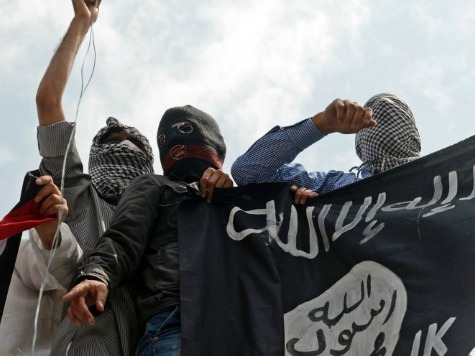“When presidents say Islam is a religion of peace,” former George W. Bush advisor Elliot Abrams said at a forum on Monday, “the average American thinks this is crap.”
Presidents Bush and Obama both publicly declared Islam to be a religion of peace, which has struck a sour chord for many. Far better, Abrams said, for American leaders to ask, “Is there something in Islam that has led some Muslims to behave in a way that we consider to be terrible? And what’s the debate in Islam?” It is this last question that signals what may prove to be the most important weapon in the ever-escalating battle between the West and ISIS.
To date, American and Western leaders have preemptively shut down any debate within Islam by declaring that Islam is the religion of peace and that terrorism has nothing to do with Islam. In so doing, Western governments have effectively shut the door on those Muslims who dare to dissent, who suggest reform rather than radicalism as the solution to Islam’s ills. The result is that the Islamists are running the show, from Iraq to Syria to Libya to Iran.
During the Cold War, U.S. support for Soviet and Eastern European dissidents was a decisive factor in breaking the Soviet Union’s grip over much of the world. In the 1960s and 1970s, American support came primarily from private groups and individuals. But President Reagan understood that support to dissidents could be decisive in the battle. If dissidents received moral and material support from the West, it would help to prove that Soviet domination was not inevitable and that the so-called Forces of History were in fact reversible. Thus, engaging in the war of ideas became a key component of the Reagan doctrine.
Today, no one has heard of the Muslim dissidents, the reformers. They certainly are not invited to the White House. That privilege is reserved for the heads of CAIR and ISNA and MAS.
To date, one man has helped to get the voices of dissidents heard. Stephen Ulph started his career studying terrorism. A Brit, he was a founder and former editor of Terrorism Security Monitor and editor and analyst for Islamic Affairs, published by Jane’s Information Group. But his fluency in various Middle Eastern languages eventually brought him into contact with some of the Middle East’s dissident voices. He understood their importance in the fight against terrorism, and it then became his mission to support them and bring their voices to a Western audience. He created the website www.almuslih.org, The Reformer, where he publishes their articles in both English and Arabic. Mr. Ulph brought a small group of reformers together in December 2012 in Rome, a meeting I had the privilege to attend. Most were familiar with each other’s work, but they had never met each other.
The voices within the reformist movement are wide-ranging. Some consider themselves devout Muslims who want to see their religion learn to live alongside other religions; others had left the faith but maintained pride in their Muslim-Arab heritage. The solutions they offered were also wide-ranging. The most prominent among the participants in Rome was Lafif Lakhdar, a French-Tunisian writer who died just a few months after the meeting. He argued that terrorism did not come out of a vacuum; it came out of the education, which glorified martyrdom. “We have to dismantle the martyrdom argument,” he said. Dr. Abd al-Khaliq Hussein, an Iraqi intellectual, argued against the “root-cause analysis” that has so pervaded U.S. counter-terrorism policy. He warned that the West’s courting of the Islamists defeats any efforts at reform and can lead only to totalitarianism.
These are the men and women who can answer Eliot Abrams’ question, “What is the debate in Islam?” On December 2, Stephen Ulph is bringing a handful of the Almuslih reformers to Washington for a one-day discussion, co-sponsored by the Westminster Institute, entitled Progressive Arab Voices on Islamic Reform. Perhaps some in Washington will understand the importance of U.S. support for dissident voices in the Muslim world and will want to hear what they have to say.
For more information on the conference, go to www.Almuslih.org.
Katie Gorka is the president of the Council on Global Security: @katharine gorka.

COMMENTS
Please let us know if you're having issues with commenting.